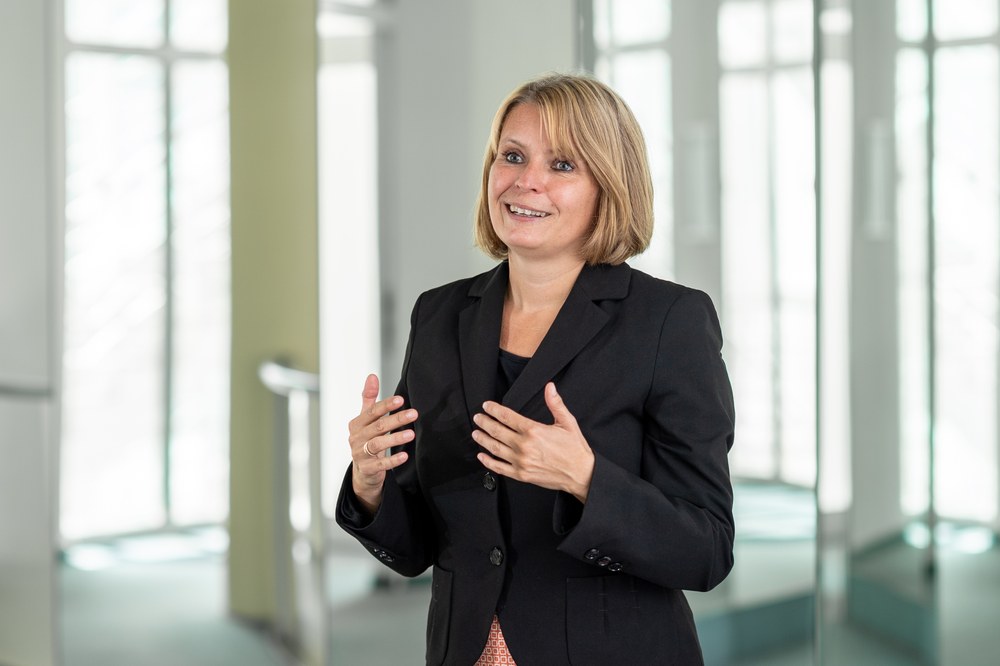Climate Change and the economy

Adobe Stock/khunkorn
The latest Assessment Report of the United Nations Intergovernmental Panel on Climate Change (IPCC) and a current evaluation from the World Meteorological Organization underline that we are now dangerously close to global warming of 1.5 degrees Celsius. Achieving climate neutrality means facing major economic and societal challenges. Meeting the requirements for climate protection will require nothing less than restructuring our transport system, approach to mobility and entire sectors, such as the energy-intensive raw materials industry. With its 'Economics of Climate Change' funding measure, the German Federal Ministry of Education and Research (BMBF) addresses the methods and tools with which we may successfully advance climate protection and address climate change from an economic and socio-scientific perspective. The DLR Projektträger has been a partner on the activities of this initiative since the very beginning.
Why is climate economics research so important?
Becker: In order to keep global warming well below two degrees Celsius – and if possible, below 1.5 degrees Celsius – and achieve carbon neutrality by 2045, we need to know about the economic impact of climate change and which climate protection strategies are available. This is where climate economics research comes into play: it sheds light on how we might implement the economic transformation, which climate policy instruments are effective and efficient and how to address remaining climate-related risks. Such research provides reference data and other information that provide guidance and decision-making tools for the debate on of climate and energy policy, so it is a vital prerequisite for successful policy decision-making. The BMBF's Economics of Climate Change funding measure adds economic and socio-scientific perspectives to the issue, which has long been strongly geared towards the natural sciences.
How were the research findings applied?
Becker: To give one example, scientists and practitioners learned from previous environmental agreements and derived practicable recommendations for the future of the Paris Agreement, such as setting a global carbon dioxide price.
Steg: When developing funding measures it is important to consider the transfer to economy and society right from the beginning. The 'Dialogue on Climate Economics' – that overarching accompanying process in the funding measure in addition to single research projects – has also proven very important. It ensures that scientists enter into direct interaction and exchange with stakeholders from industry, administration, politics and civil society.
What are some recent examples of successful funding?
Steg: One example is the management of the phase-out of coal. Specifically, the scientists examined the development potential of the energy transition in Lusatia. The focus was on wind energy, photovoltaics, bioenergy, heat pumps and energy-efficient building renovation. A second example is the important contribution of science to the instrument of carbon pricing, which was embedded in the German government's 2030 climate protection programme for the heat and transport sectors.
How can you ensure that these changes are not just a flash in the pan, but will go on to have a long-term impact?
Steg: In the past, we were still looking to the USA for research into climate-related economics. The relevant competencies and capacities have now been consolidated in Germany, too. It is vital that such topics are not only researched under project funding for a limited period, but become areas of focus for scientific institutions, companies and society over the longer term. That is our job as a project management agency. In terms of climate economics, we have created a scientific community in Germany that can react directly to climate and energy policy issues and is able to communicate them in a way that can be understood by the general public. For instance, immediately after the Russian invasion of Ukraine, climate economists presented models and assessments of the potential effects of the war on German and international climate policy, and the economic consequences of an embargo on gas.
Becker: In the field of climate economics, Germany has an established network of scientific institutions that complement each other's expertise, exchange information and achieve reliable results. Young scientists, whose competence has been deliberately developed over recent years, are just as essential for the long-term success of such endeavours. In the future, these people will work in a wide variety of roles and functions in science, business, policymaking and administration and will bring their significant expertise and perspectives in climate economics with them.
The BMBF's economics of climate change programme
The goal is clear: Germany is to become climate neutral by 2045. This historic challenge poses a series of numerous questions to science, business, politics and wider society. Which paths should we take to achieve the transition? Which interconnections need to be taken into consideration? And which measures and instruments are effective for sustainable and efficient climate protection? More expertise is needed to achieve the ambitious goal of climate neutrality. For this reason, the Federal Ministry of Education and Research (BMBF) is financing the Economics of Climate Change funding measure, with 29 research projects tasked with expanding the necessary economic expertise and developing practical solutions by the end of 2022. The DLR Projektträger has been involved as a technical and administrative partner from the very beginning.
An article by Britta Paul und Stefanie Huland from the DLRmagazine 171. Both work for the DLR Projektträger.


